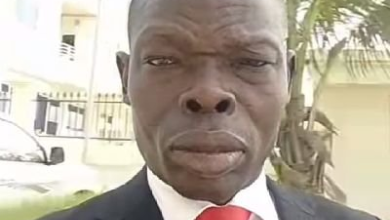
|
Getting your Trinity Audio player ready...
|
On September 1, 2024, a 15-year-old boy broke into his neighbour’s house and assaulted his 14-year-old neighbour. As this news went viral among Nigerians on Twitter, certain activists called for the rehabilitation of the perpetrator, attributing his violent actions to societal influences. The rehabilitation of the perpetrator, as opposed to holding him accountable for his actions through imprisonment, is argued to align with the ideology of prison abolitionism. Let’s explore what prison abolitionism is and its effectiveness in achieving justice for women and girls who are victims of male violence.
Prison abolitionism is a movement that calls for the complete dismantling and eradication of the prison system, seeking to explore alternative approaches to addressing crime and punishment, such as community-based programmes and restorative justice. The key founders of the ideology include Angela Davis, the Black Panther Party, and Women of Colour (WOC) feminists. This radical movement examines societal factors, including racial and class inequalities, that contribute to crimes committed by black men. Some of these factors include racial profiling and disproportionately long sentences, with black men typically receiving sentences that are 19% longer than those of white men for the same crimes.
While the movement itself criticises systemic racism, it overlooks the unique needs of black women who face intersecting forms of oppression, such as misogynoir. For women and girls who have suffered male violence, the assurance that their perpetrators are held accountable and incarcerated provides them with a sense of peace, safety and justice. It also ensures that perpetrators do not have the freedom to harm others.
As such, abolishing prisons without a robust alternative may leave victims without the necessary systems to seek justice against their perpetrators. Also, restorative justice, often seen as an alternative to incarceration, can conflict with feminist principles, particularly in cases of violence against women. While it may be suitable for non-violent offences, its application in domestic violence situations poses significant risks. The process typically requires direct interaction between victims and perpetrators, heightening feelings of vulnerability and undermining the commitment to safety. Moreover, restorative justice often fails to address systemic power imbalances in abusive relationships, potentially reinforcing these dynamics. Without punitive measures, victims may lack necessary legal protections, leaving them exposed to ongoing threats.
The emphasis on dialogue in restorative justice can also dilute the narratives of survivors of male violence, minimising their pain and contradicting feminist efforts to amplify women’s voices. The possibility of having to engage in dialogue with their perpetrators in a restorative justice system can further re-traumatise survivors.
Also, the discourse surrounding rehabilitation frequently emerges when discussing male violence against women and girls, leading to perceptions that the movement is dismissive of victims’ experiences. This discussion is incompatible with feminist goals, which aim to highlight the experiences of women and girls and prioritise their needs.
“Prison abolitionists are too perpetrator-focused, and considering that the vast majority of perps are men, it’s too androcentric. Their ideology tends to revolve absolving the perpetrator of blame, minimising the victim’s suffering or need for retribution & pressuring forgiveness,” Nigerian Feminist Dami Onosowobo (@onosowobo) tweeted.
Although the call for prison abolition raises significant issues regarding justice, safety, and equity, advocating for amendment or reform is more effective than outright abolition. This approach includes investing in resources and community-based support systems for victims.
The existence of the prison system can serve as a deterrent to potential abusers, preventing them from acting on their impulses. The lack of consequence for perpetrators of crimes often fails to stop violent behaviour, as seen in the case of Ayomide Adeleye, who killed Christiana and has been linked to the murder of other women, including his sister, whom he buried at his family’s residence. This situation highlights the limitations of prison abolitionism, where the state fails to remove the individual from society, leaving others vulnerable to victimisation.
In conclusion, it is important to centre the experiences of women and girls in any ideology. It is critical to consider the potential consequences of prison abolition for vulnerable women in a society where femicide occurs.






